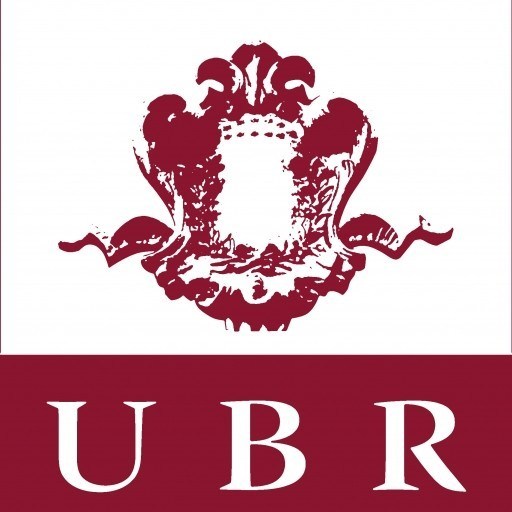Photos of university / #unibuc
The Bachelor's degree in English Linguistics at the University of Bucharest offers students a comprehensive understanding of the English language, its structure, history, and usage across different contexts. This program is designed to equip students with advanced linguistic knowledge, analytical skills, and practical competencies necessary for diverse careers in language teaching, translation, speech therapy, publishing, and research. Throughout their studies, students explore phonetics, phonology, morphology, syntax, semantics, and pragmatics, gaining insight into how language functions at various levels. The curriculum also emphasizes English language variation, sociolinguistics, and discourse analysis, enabling students to understand language in social and cultural contexts. Additionally, students have the opportunity to study language acquisition, psycholinguistics, and computational linguistics, preparing them for innovative applications in technology and artificial intelligence. The program fosters critical thinking, research capacity, and effective communication skills, through coursework, seminars, and practical projects. Students are encouraged to engage with authentic language data and participate in debates, presentations, and internships, ensuring their skills are aligned with current industry standards. Graduates of this program are well-prepared for careers in education, translation, editing, publishing, language consultancy, and further academic research. The University of Bucharest's distinguished faculty, modern facilities, and active academic community provide a stimulating environment for the intellectual and professional development of students. Emphasizing both theoretical foundations and practical expertise, the program aims to produce competent linguists capable of analyzing and applying knowledge of the English language across multiple disciplines and professional settings.
The Bachelor of Arts in English Linguistics at the University of Bucharest offers students a comprehensive exploration of the English language, its structure, history, and usage in various contexts. This program is designed to provide a solid foundation in linguistic theories, language analysis, and practical applications, preparing graduates for diverse careers in education, translation, linguistics research, and communication industries. Throughout the coursework, students engage with phonetics, phonology, morphology, syntax, semantics, and pragmatics, gaining an in-depth understanding of the linguistic mechanisms that underpin the English language. They also examine historical language development, dialectal variations, and socio-cultural influences on language evolution. The programme emphasizes both theoretical knowledge and practical skills, including linguistic data analysis, language teaching methodologies, and intercultural communication. Students have opportunities to participate in research projects, linguistic fieldwork, and internships, fostering critical thinking and real-world problem-solving abilities. The curriculum also integrates modern language technologies and computational linguistics, aligning with current trends in language sciences. Additionally, courses focus on translation techniques, corpus linguistics, and discourse analysis, equipping students with versatile competencies for employment in academic, media, and business sectors. The programme encourages active participation, critical inquiry, and international perspectives, often involving collaboration with academic partners worldwide. Graduates of the program are well-prepared to pursue postgraduate studies or join professional fields where expert knowledge of English linguistics is essential. The university’s state-of-the-art facilities, dedicated faculty, and vibrant academic community support an enriching educational experience, enabling students to develop both their linguistic expertise and their communicative confidence in diverse settings.
Admission prerequisites for the English Linguistics program at the University of Bucharest typically include a high school diploma or equivalent qualification. Applicants are expected to demonstrate proficiency in English, often evidenced through standardized language tests such as IELTS or TOEFL, or through an internal assessment process conducted by the university. A high school grade average relevant to language and literature subjects may also be considered favorable. The application process usually involves submitting a completed application form, academic transcripts, proof of English proficiency, and possibly a motivation letter or personal statement explaining the applicant's interest in linguistics and future goals. In some cases, an interview may be required to assess the applicant's motivation and suitability for the program. The program aims to develop advanced skills in theoretical and applied linguistics, including phonetics, syntax, semantics, and language acquisition, preparing students for careers in teaching, research, translation, or further academic pursuits. The curriculum is structured to ensure students gain both practical language skills and a deep understanding of linguistic theories. Eligibility for admission may also depend on other criteria set by the admissions office, such as age limits or specific entry examinations, although these are not always mandatory. International students may need to provide additional documentation, such as a valid student visa or residence permit. The university values diverse educational backgrounds and encourages applicants from various regions who meet the proficiency and academic criteria. Continuous evaluation through coursework, projects, and exams ensures that students are progressing according to the standards of the program. Overall, the requirements are designed to select motivated and qualified candidates committed to studying linguistics at an advanced academic level.
The English Linguistics program at the University of Bucharest offers a variety of financing options to support students throughout their studies. Tuition fees are established annually and vary depending on the student’s status, such as local, EU, or international student. Domestic students benefiting from state-funded places do not pay tuition fees, while those enrolled in fee-paying places are required to pay a university fee that covers instruction, access to learning resources, and other educational services. International students are generally required to pay tuition fees, which are set in accordance with the university’s regulations and vary depending on the student's country of origin.
Financial support for students may be available through government grants, scholarships, and university-specific awards. The Romanian government and the University of Bucharest itself offer various merit-based and need-based scholarships to outstanding students, including those enrolled in the English Linguistics program. Scholarships can cover partial or full tuition fees and sometimes include stipends for living expenses. Applicants are usually evaluated based on academic performance, extracurricular activities, and financial need. Furthermore, the university collaborates with several cultural and educational exchange programs, offering opportunities for financial assistance through Erasmus+ and other European mobility programs, enabling students to spend part of their studies abroad with financial support.
In addition to scholarships, students may access student loans or part-time employment opportunities, which are often facilitated by the university’s career services and student support centers. The university provides guidance on finding internships, part-time jobs, and external funding sources appropriate for students pursuing linguistic and humanities degrees. For international students, specific visa regulations and residency requirements may also influence access to financial aid and work opportunities within Romania.
Moreover, the university encourages students to explore external funding sources such as private foundations, international organizations, and corporate sponsorships that support academic excellence and research in linguistics. The overall goal of the university’s financing strategies is to ensure that students from diverse backgrounds have access to quality education in English Linguistics, minimizing financial barriers and promoting academic achievement. Detailed information about current tuition fees, scholarship programs, and financial aid options can be obtained directly from the university’s admissions and student support offices.
The Bachelor’s degree program in English Linguistics at the University of Bucharest offers students a comprehensive understanding of the English language, its structure, history, and usage in various social and cultural contexts. This program is designed to equip students with advanced knowledge of phonetics, phonology, morphology, syntax, semantics, and pragmatics of the English language. Students will have the opportunity to explore linguistic theories and methodologies, linguistic variation and change, and the relationship between language and society.
The curriculum includes a broad range of courses, such as Introduction to Linguistics, Phonetics and Phonology, Morphology, Syntax, Semantics, Pragmatics, and Discourse Analysis. Additionally, students study British and American English varieties, language acquisition, and the history of the English language. The program emphasizes developing analytical skills, critical thinking, and proficiency in research methods, enabling graduates to pursue careers in teaching, translation, interpretation, language consulting, or further academic research.
Over the course of the program, students engage in practical exercises, including linguistic data collection and analysis, speech production, and language processing. They are encouraged to participate in seminars, workshops, and internships to supplement their theoretical knowledge with real-world experience. The program fosters a multidisciplinary approach, integrating insights from anthropology, psychology, and computer science, especially in areas like computational linguistics and language technology.
Graduates of the program are expected to demonstrate proficiency in English at a level allowing them to analyze linguistic phenomena critically, produce scholarly work, and communicate effectively in professional contexts. The degree prepares students for careers in education, publishing, digital media, cultural institutions, or further specialization through master’s and doctoral studies.
The program is delivered in a combination of lectures, seminars, group discussions, and individual research projects, encouraging active participation and collaborative learning. The faculty comprises experienced linguists and language specialists committed to high-quality education and research. Students also benefit from the university’s extensive library resources, language labs, and opportunities for participation in national and international academic exchanges.
Overall, the English Linguistics program at the University of Bucharest is tailored for students passionate about the English language and eager to explore its complexities, contributing to the fields of linguistics, language teaching, and language policy. The program’s goal is to cultivate skilled linguists who can analyze, interpret, and apply linguistic knowledge to solve real-world language issues and foster intercultural communication in an increasingly globalized world.








